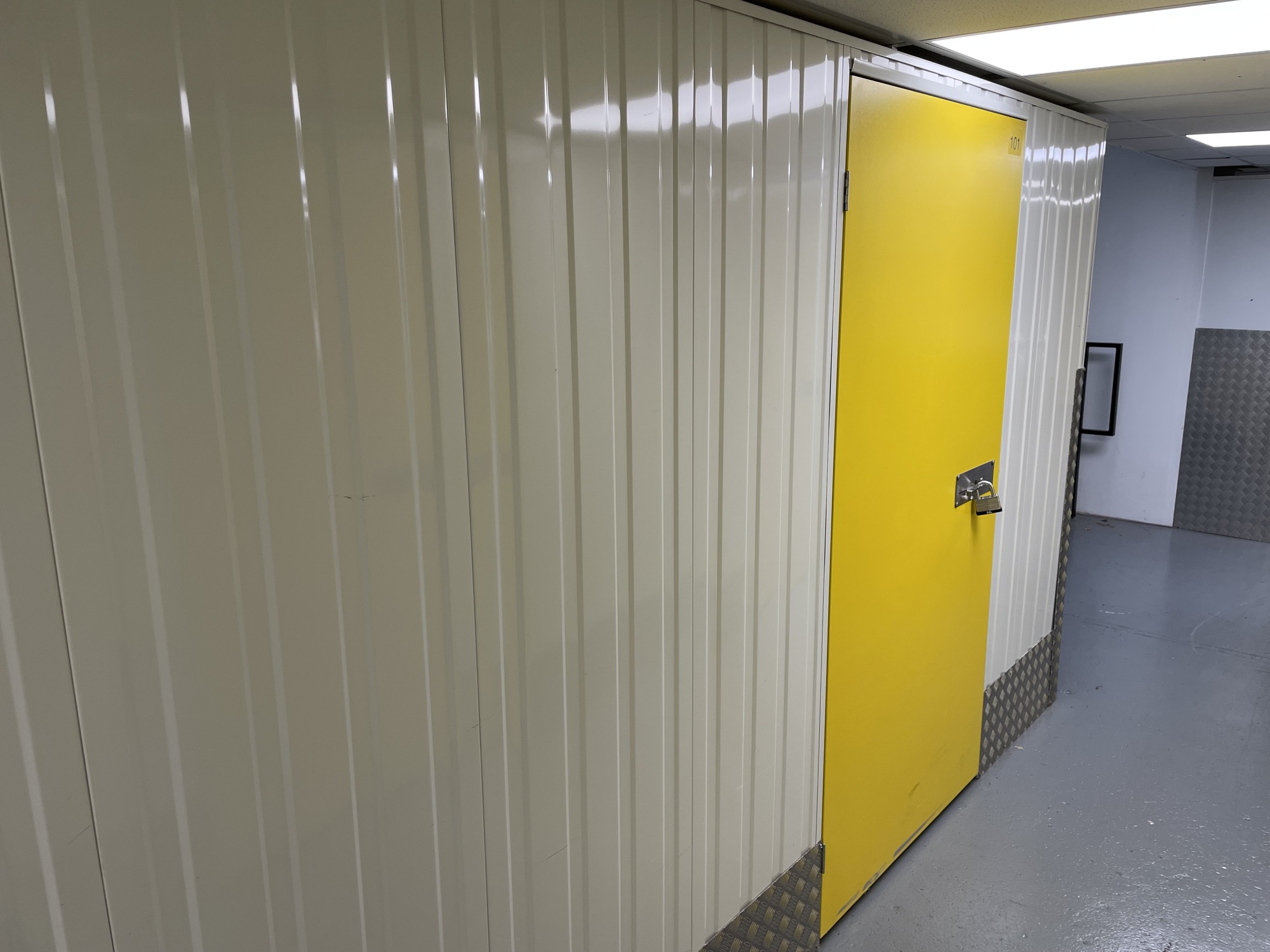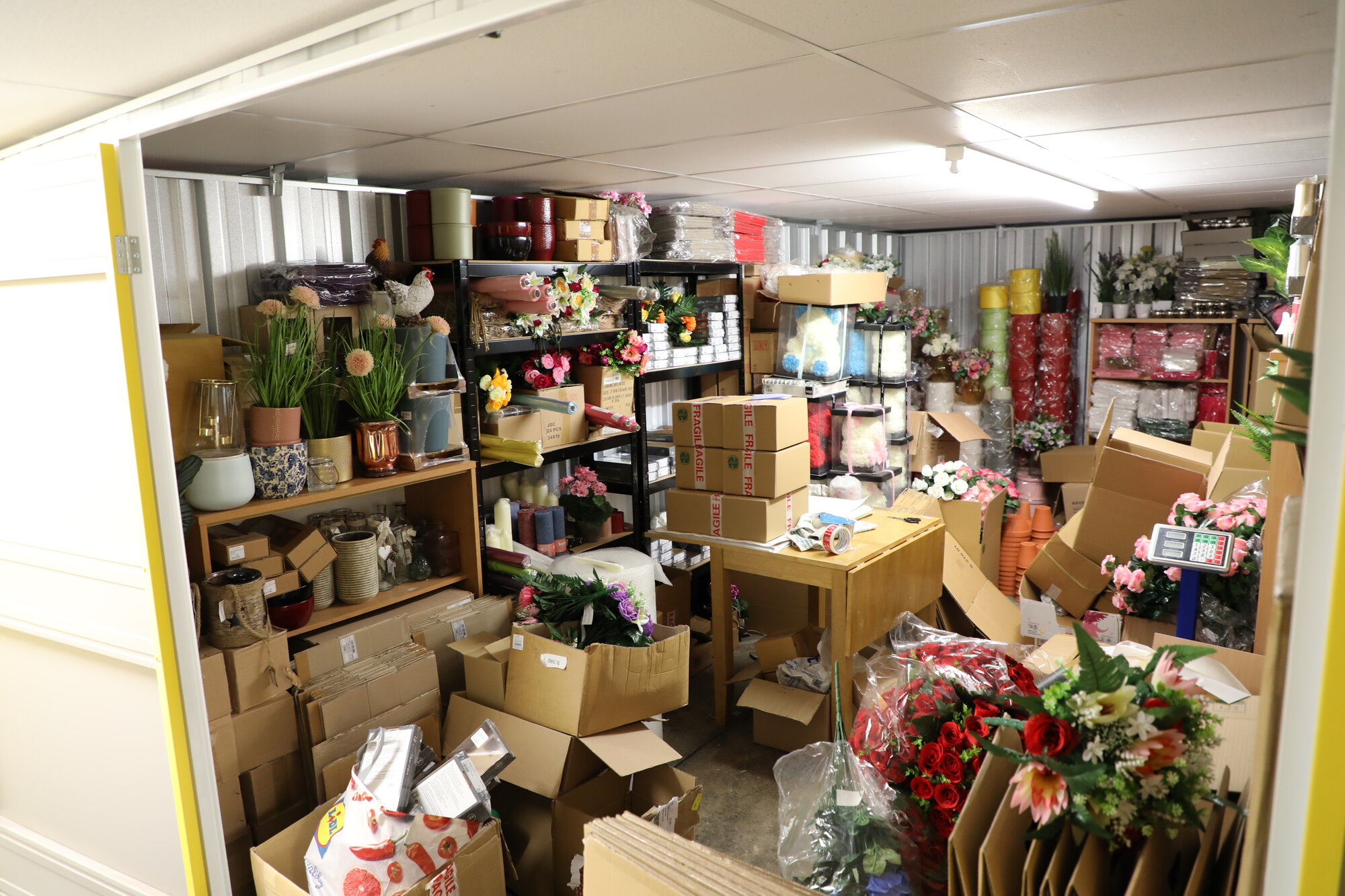In the UK, SME businesses have access to a range of self-storage options to meet their storage needs. In this article we will look at how do self storage units work?
One common choice is traditional self-storage units. These units are individual spaces within secure facilities where businesses can store their goods, equipment, or inventory. They come in various sizes, from small lockers from 25sqft to large rooms up to 300sqft, providing flexibility for SMEs of different scales. These units sometimes offer 24/7 access, allowing businesses to retrieve or add items as needed. In this article
Another option is outdoor container storage, which involves using shipping containers for storage purposes. Container storage facilities provide weatherproof and secure containers, making them suitable for businesses with larger storage requirements. These containers are available in different sizes, and SMEs can rent them for varying durations based on their needs. Container storage can be a cost-effective solution for businesses that require a significant amount of storage space. We will look at some of the issues and negatives relating to container storage later in the article
For SMEs seeking more than just storage, there are dedicated business storage centres. These centres specialise in providing storage solutions tailored to businesses. Alongside storage units, they often offer additional services such as shelving, office space, and meeting rooms. This can be beneficial for SMEs that require integrated storage and workspace solutions or those that need facilities for client meetings or administrative tasks.
Mobile storage units are another option available to SMEs. These units are portable containers that can be delivered directly to the business location. SMEs can load their items into these containers at their convenience, and the containers can be stored on-site or taken to a secure facility. This option is particularly useful for businesses that require frequent access to their stored items or have fluctuating storage needs.
Document storage facilities cater specifically to businesses that need to store and manage their documents, archives, and records securely. These facilities often provide services such as indexing, retrieval, and shredding to help SMEs organize their documents and ensure compliance with data protection regulations. Document storage can be an efficient solution for businesses with large amounts of paperwork or those that require long-term document retention.
Integrated storage and work space
Some self-storage providers offer a combination of storage and flexible workspace options. Alongside storage units, they provide shared offices, coworking spaces, or dedicated desk areas. This integrated approach allows SMEs to have storage space and workspace in a single location, promoting convenience and efficiency. This option can be attractive for businesses that require both storage for their goods and a flexible workspace for their operations.
Lastly, online storage marketplaces have emerged as a popular option. These platforms connect businesses with individuals or companies that have spare storage space available. SMEs can find storage options near their location at competitive rates. Online storage marketplaces offer convenience and a wide range of choices, making them an appealing option for businesses seeking flexible storage solutions.
It’s important for SMEs to carefully evaluate their storage requirements and consider factors such as location, security, size, accessibility, and additional services when selecting a self-storage option. Researching and comparing different providers can help SMEs find the most suitable storage solution that meets their specific needs.
Looking for more information on storage unit sizes and cost?
The disadvantages of external container storage
Using container storage for the temporary storage of business equipment and paperwork can have certain disadvantages that businesses should take into consideration. Firstly, container storage facilities are often located in dedicated areas, which may be situated outside urban areas or far from the business premises. This limited accessibility can result in inconvenience and additional transportation costs for businesses that require frequent or immediate access to their stored items. Retrieving specific equipment or paperwork from a container may require extra time and effort, affecting operational efficiency.
Another drawback is the lack of climate control in most container storage facilities. External containers are not typically equipped with temperature or humidity regulation systems. As a result, sensitive equipment, delicate documents, or perishable goods may be exposed to extreme temperatures, humidity, or condensation. Without proper precautions, this can lead to damage or deterioration of the stored items, potentially resulting in financial losses or operational setbacks for the business.
Container storage also poses certain security challenges. While internal storage facilities generally implement security measures such as fencing, CCTV cameras, and access controls, containers themselves are more vulnerable to break-ins or unauthorized access due to their external nature. This can pose a risk to valuable business equipment or confidential paperwork. Businesses storing high-value or sensitive items may need to consider additional security measures to mitigate these risks.
Containers come in standard sizes, such as 20 or 40 feet, which may not always align perfectly with a business’s specific storage needs. This can result in either wasted space if the container is larger than required or insufficient space if it is too small. Adapting the storage area to accommodate changing requirements may be challenging and may not offer the same flexibility as purpose-built storage units.
Organising and retrieving items stored in containers can be more difficult compared to purpose-built storage units. Without proper shelving, labelling, or indexing systems, finding specific items within a container can be time-consuming and inefficient. This can hinder productivity and increase the risk of misplaced or lost items. Businesses relying on quick and easy access to their stored equipment or paperwork may find container storage less suitable for their needs.
Moreover, using container storage means relying on external providers for the service. How do self storage units work if the provider experiences operational issues or goes out of business, it can disrupt access to stored items and potentially lead to complications in retrieving equipment or paperwork. Businesses need to consider the reliability and stability of the storage provider to minimise the risk of disruptions.
Lastly, container storage facilities often focus solely on providing storage space and may not offer additional services that businesses may require. For example, services such as document management, inventory tracking, or professional assistance with packing and unpacking may not be available. SMEs that require such services may need to consider alternative storage options or seek additional service providers to meet their specific needs.
Considering these disadvantages, businesses should carefully evaluate their storage requirements and assess whether container storage is the most suitable option for their temporary storage needs. Exploring alternative storage solutions and considering the specific needs of the business can help ensure that equipment and paperwork are stored in a secure, accessible, and appropriate environment.




